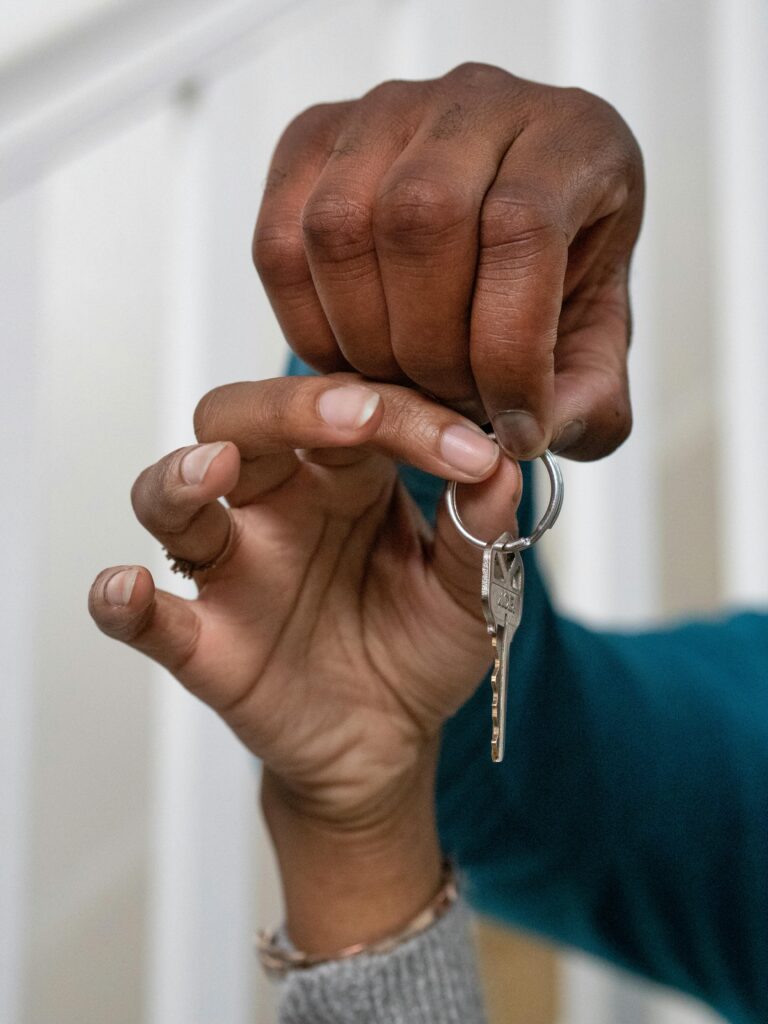Deciding whether to continue renting or take the plunge into homeownership is one of life’s major financial and lifestyle crossroads. It’s about stability, costs, flexibility, and your long‑term goals. Drawing on expert guidance, here’s an in-depth exploration that balances personal goals with financial realities.






Why Rent or Buy? What’s at Stake?
“Renting: Freedom and Predictability“
“Buying: Building Equity and Stability“
Renting: Freedom and Predictability.
- Rent offers flexibility—ideal if you’re unsure about long‑term plans or may need to relocate for a job or opportunity.
- Renting avoids many upfront and ongoing responsibilities: no maintenance bills, no property taxes, no must‑buy insurance, and greater ability to leave after a lease term
- NerdWallet notes many renters (about 37%) prefer renting as a lifestyle choice—and 75% say renting currently suits them better than owning
Buying: Building Equity and Stability
- Homeownership builds equity over time, offering financial growth and long‑term wealth potential.
- You gain control—making renovations, renting out space, or simply enjoying stability without rent hikes.
- Buying can feel like a milestone: planting roots in a community and creating predictability.
Financial Requirements
Down payment & closing costs
- Buyers typically need between 3% and 20% down depending on the loan type, plus 3–6% of the purchase price for closing costs.
Rocket Mortgage calls out that closing costs alone may be 3–6%, and many first‑time buyers underestimate those upfront costs.
Debt‑to‑Income (DTI) and Affordability Rules
Rocket Mortgage and NerdWallet both recommend the 28/36 rule: spend no more than 28% of your gross income on housing and 36% on total debt payments.
NerdWallet emphasizes the importance of comparing your current rent plus other debts in a realistic DTI calculation.
Credit and mortgage qualification
- A credit score of 620+ is often needed for most loans—higher scores unlock better interest rates.
- Government‑backed loans (FHA with as low as 3.5% down, VA, USDA, FHA) may allow lower credit thresholds and smaller down payments
Assistance Programs & Educational Support
First‑time homebuyer programs offer down‑payment assistance, closing‑cost grants, or tax credits, both at the federal and state/local levels.
Rocket Mortgage suggests checking HUD directories, state housing authority websites, and nonprofit programs. Lenders can also guide you toward eligible programs.
Taking a first‑time home buyer education class (often free or low cost) can qualify you for more programs and help you understand the process—from budgeting and loans to inspections and ownership responsibilities.
Lifestyle & Longevity
- If you plan to stay in one place for 5+ years, buying often becomes financially attractive: costs even out, equity builds, and appreciation starts to matter.
- If your horizon is shorter—1–3 years—renting may be more cost-effective unless you can monetize via renting/selling fast.
- Rocket Mortgage notes that when relocating for a job, buying could still make sense—even if you stay for less than five years, given resale flexibility or potential rental conversion.
Assessing Readiness: Financial and Lifestyle Factors
“Financial Requirements”
“Assistance Programs & Educational Support“
“Lifestyle & Longevity“
Cost Comparison: How to Evaluate Rent vs. Buy
“Use Calculators Wisely“
“Real Examples & Market Data“
“Hidden & Recurring Expenses of Ownership“
Use Calculators Wisely
- Both NerdWallet and Rocket Mortgage offer rent vs. buy calculators that incorporate purchase price, rent, mortgage rate, down payment, home price and rent growth, insurance, taxes, maintenance, etc. These tools help you forecast the “break‑even” point where renting becomes more expensive than buying over time
Real Examples & Market Data
- The typical first‑time buyer list price in Q1 2025 was about $413,700. At a 9% down payment (median), that corresponded to a monthly payment (including insurance, tax, PMI) of approximately $3,240.
- If equivalent rent is significantly lower—say $2,500/month—then you might need 5+ years of stability for buying to make sense via equity growth and tax deductions.
Hidden & Recurring Expenses of Ownership
- Beyond the mortgage: property taxes, homeowners insurance, maintenance, HOA fees, and possibly PMI if your down payment is under 20%.
- Rocket Mortgage cautions that many buyers underestimate these recurring costs and their long‑term impact .
Pros of Buying
Builds equity and long‑term wealth
Stable monthly housing cost (fixed rate mortgages)
Freedom to modify your home
Access to tax deductions on mortgage interest and property taxes
Ability to leverage first‑time buyer programs or grants
Pros of Renting
- Low upfront investment
- Flexibility to move without selling
- Maintenance and repairs handled by landlord
- Predictable short‑term housing cost
Cons of Buying
High upfront costs: down payment + closing costs
Potentially inflexible if pressurized to move soon
Responsibility for maintenance, repairs, upkeep
Risk if housing market softens or home value declines
Cons of Renting
- No equity accumulation—it’s not an investment
- Rent may increase over time
- Less control over living space, décor, renovations
- You may lose housing security if landlord changes terms or sells
Advantages & Drawbacks: At a Glance
“✅ Pros of Buying“
“✅ Pros of Renting“
“❌ Cons of Buying“
“❌ Cons of Renting“
Step‑by‑Step Decision Roadmap
Here’s a practical roadmap:
Evaluate your financial readiness: steady income, manageable debt (DTI < 36%), and credit score ≥ 620.
Assess your savings: Do you have enough for a ~5–9% down payment and closing costs? Check if assistance or grants are available.
Use a rent vs. buy calculator: plug in local rent, projected growth, mortgage scenarios, maintenance, and taxes.
Estimate total monthly ownership costs: include insurance, taxes, maintenance, and PMI if applicable.
Consider your timeline: planning to stay 5+ years? Buying may pay off. Shorter horizon? Renting may be safer.
Get preapproved if leaning toward buying: preapproval shows you what you can afford and helps sellers take you seriously.
Take a buyer education class: gain confidence, learn pitfalls, and qualify for programs.
Shop multiple lenders: compare rates, privileges, and closing costs to find the best mortgage deal.
Here’s a practical Common Mistakes:
Skipping mortgage preapproval, which weakens your offer power.
Not comparing lenders—you might end up paying significantly more over the life of your loan.
Ignoring first‑time buyer programs, which can dramatically reduce your required upfront cost.
Putting down too little, leading to PMI and higher monthly payments than expected.
Failing to calculate the true cost of homeownership, including maintenance and property taxes.
Common Mistakes & How to Avoid Them
What About Rent‑to‑Own Alternatives?
If you’re short on savings or credit, a rent‑to‑own agreement might bridge the gap—letting you lease a home for 1–3 years with a portion of rent credited toward purchase. But be cautious:
You usually pay extra in the form of option fees and monthly rent premiums.
If you don’t qualify for a mortgage later or change your mind, you could lose your deposit or credits.
This path is most effective if you’re committed and confident you’ll qualify when the time arrives.
Rent if you’re uncertain about location, lack sufficient savings, or prefer flexibility over financial commitments.
Buy if you have savings, steady income, and plan to stay long enough to benefit from equity buildup—plus you’re ready for maintenance and bureaucracy.
Use tools and resources to analyze your options: take advantage of first-time buyer programs, get educated, and understand all the costs involved.
If you’re motivated and financially on track, buying could be a strong path toward long-term stability and wealth—especially when you plan to stay put and invest in your future.
Final Thoughts: Should You Plant Roots?
In summary, the rent vs. buy decision ultimately hinges on your personal timeline, financial health, and life-stage goals. Equip yourself with knowledge—run real calculations, explore assistance options, and clarify your readiness. That way, whether you choose to keep renting or finally plant roots, you’ll make the choice with confidence and clarity.



